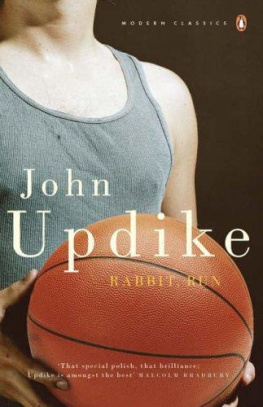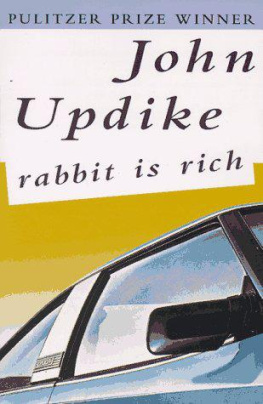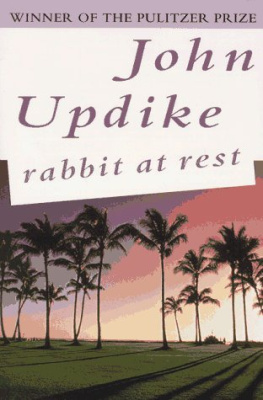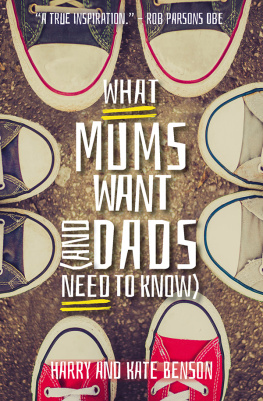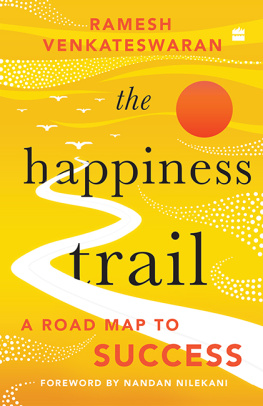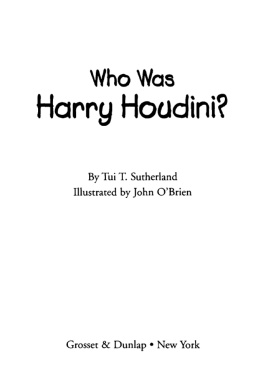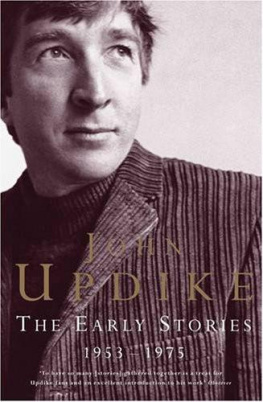John Updike - Rabbit, Run
Here you can read online John Updike - Rabbit, Run full text of the book (entire story) in english for free. Download pdf and epub, get meaning, cover and reviews about this ebook. year: 1996, publisher: Ballantine Books, genre: Detective and thriller. Description of the work, (preface) as well as reviews are available. Best literature library LitArk.com created for fans of good reading and offers a wide selection of genres:
Romance novel
Science fiction
Adventure
Detective
Science
History
Home and family
Prose
Art
Politics
Computer
Non-fiction
Religion
Business
Children
Humor
Choose a favorite category and find really read worthwhile books. Enjoy immersion in the world of imagination, feel the emotions of the characters or learn something new for yourself, make an fascinating discovery.
- Book:Rabbit, Run
- Author:
- Publisher:Ballantine Books
- Genre:
- Year:1996
- Rating:5 / 5
- Favourites:Add to favourites
- Your mark:
- 100
- 1
- 2
- 3
- 4
- 5
Rabbit, Run: summary, description and annotation
We offer to read an annotation, description, summary or preface (depends on what the author of the book "Rabbit, Run" wrote himself). If you haven't found the necessary information about the book — write in the comments, we will try to find it.
Rabbit, Run — read online for free the complete book (whole text) full work
Below is the text of the book, divided by pages. System saving the place of the last page read, allows you to conveniently read the book "Rabbit, Run" online for free, without having to search again every time where you left off. Put a bookmark, and you can go to the page where you finished reading at any time.
Font size:
Interval:
Bookmark:
IF THE POWER TO SHOCK MAY
BE TAKEN AS A YARDSTICK OF
FICTION, JOHN UPDIKE HAS
WRITTEN ONE OF THE YEARS
MOST IMPORTANT NOVELS
THE SUREST WRITING IN YEARS.
Time Magazine
RABBIT, RUN is a shocking novelnot only because of its sexual candor, but because it challenges an image of life still cherished in America.
Original, graphic, and merciless, RABBIT, RUN will be admired and hated with equal intensity. That it cannot be ignored or read with indifference is a tribute to the authors insight and great gift as a novelist.
UPDIKES PUNCH IS POWERFUL
Newsweek
The Crest imprint on outstanding books is your
guarantee of informative and entertaining reading
John Updike
RABBIT, RUN
A Crest Reprint
Fawcett Publications, Inc., Greenwich, Conn.
Member of American Book Publishers Council, Inc.
A Crest Book published by arrangement with Alfred A. Knopf, Inc.
Copyright 1960 by John Updike. All rights reserved.
No part of this book may be reproduced in any form without
permission in writing from the publisher, except by a reviewer
who may quote brief passages in a review to be printed in a
magazine or newspaper.
PRINTING HISTORY
Alfred A. Knopf edition published November 1960
Second printing, November 1960
Third printing, November 1960
Fourth printing, March 1961
First Crest printing, July 1962
Second Crest printing, August 1962
This book was written with the help of a grant generously given
by the John Simon Guggenheim Memorial Foundation.
All characters in this book are fictional and any resemblance
to persons living or dead is purely coincidental.
Crest Books are published by Fawcett World Library, 67 West 44th
Street, New York 36, New York. Printed in the United States of America.
The motions of Grace,
the hardness of the heart; .
external circumstances.
PASCAL, Pense 507
BOYS are playing basketball around a telephone pole with a backboard bolted to it. Legs, shouts. The scrape and snap of Keds on loose alley pebbles seems to catapult their voices high into the moist March air blue above the wires. Rabbit Angstrom, coming up the alley in a business suit, stops and watches, though hes twenty-six and six three. So tall, he seems an unlikely rabbit, but the breadth of white face, the pallor of his blue irises, and a nervous flutter under his brief nose as he stabs a cigarette into his mouth partially explain the nickname, which was given to him when he too was a boy. He stands there thinking, the kids keep coming, they keep crowding you up.
His standing there makes the real boys feel strange. Eyeballs slide. Theyre doing this for their own pleasure, not as a demonstration for some adult walking around town in a double-breasted cocoa suit. It seems funny to them, an adult walking up the alley at all. Wheres his car? The cigarette makes it more sinister still. Is this one of those going to offer them cigarettes or money to go out in back of the ice plant with him? Theyve heard of such things but are not too frightened; there are six of them and one of him.
The ball, rocketing off the crotch of the rim, leaps over the heads of the six and lands at the feet of the one. He catches it on the short bounce with a quickness that startles them. As they stare hushed he sights squinting through blue clouds of weed smoke, a suddenly dark silhouette like a smokestack in the afternoon spring sky, setting his feet with care, wiggling the ball with nervousness in front of his chest, one widespread pale hand on top of the ball and the other underneath, jiggling it patiently to get some adjustment in air itself. The moons on his fingernails are big. Then the ball seems to ride up the right lapel of his coat and comes off his shoulder as his knees dip down, and it appears the ball is not going toward the backboard. It was not aimed there. It drops into the circle of the rim, whipping the net with a ladylike whisper. Hey! he shouts in pride.
Luck, one of the kids says.
Skill, he answers, and asks, Hey. O.K. if I play?
There is no response, just puzzled silly looks swapped. Rabbit takes off his coat, folds it nicely, and rests it on a clean ashcan lid. Behind him the dungarees begin to scuffle again. He goes into the scrimmaging thick of them for the ball, flips it from two weak white hands, has it in his own. That old stretched leather feeling makes his whole body go taut, gives his arms wings. It feels like hes reaching down through years to touch this tautness. His arms lift of their own and the rubber ball floats toward the basket from the top of his head. It feels so right he blinks when the ball drops short, and for a second wonders if it went through the hoop without riffling the net. He asks, Hey whose side am I on?
In a wordless shuffle two boys are delegated to be his. They stand the other four. Though from the start Rabbit handicaps himself by staying ten feet out from the basket, it is still unfair. Nobody bothers to keep score. The surly silence bothers him. The kids call monosyllables to each other but to him they dont dare a word. As the game goes on he can feel them at his legs, getting hot and mad, trying to trip him, but their tongues are still held. He doesnt want this respect, he wants to tell them theres nothing to getting old, it takes nothing. In ten minutes another boy goes to the other side, so its just Rabbit Angstrom and one kid standing five. This boy, still midget but already diffident with a kind of rangy ease, is the best of the six; he wears a knitted cap with a green pompom well down over his ears and level with his eyebrows, giving his head a cretinous look. Hes a natural. The way he moves sideways without taking any steps, gliding on a blessing: you can tell. The way be waits before he moves. With luck hell become in time a crack athlete in the high school; Rabbit knows the way. You climb up through the little grades and then get to the top and everybody cheers; with the sweat in your eyebrows you cant see very well and the noise swirls around you and lifts you up, and then youre out, not forgotten at first, just out, and it feels good and cool and free. Youre out, and sort of melt, and keep lifting, until you become like to these kids just one more piece of the sky of adults that hangs over them in the town, a piece that for some queer reason has clouded and visited them. Theyve not forgotten him; worse, they never heard of him. Yet in his time Rabbit was famous through the county; in basketball in his junior year he set a B-league scoring record that in his senior year he broke with a record that was not broken until four years later, that is, four years ago.
He sinks shots one-handed, two-handed, underhanded, flatfooted, and out of the pivot, jump, and set. Flat and soft the ball lifts. That his touch still lives in his hands elates him. He feels liberated from long gloom. But his body is weighty and his breath grows short. It annoys him, that he gets winded. When the five kids not on his side begin to groan and act lazy, and a kid he accidentally knocks down gets up with a blurred face and walks away, Rabbit quits readily. O.K., he says. The old mans going.
To the boy on his side, the pompom, he adds, So long, ace. He feels grateful to the boy, who continued to watch him with disinterested admiration after the others grew sullen, and who cheered him on with exclamations: God. Great. Gee.
Rabbit picks up his folded coat and carries it in one hand like a letter as he runs. Up the alley. Past the deserted ice plant with its rotting wooden skids on the fallen loading porch. Ashcans, garage doors, fences of chickenwire caging crisscrossing stalks of dead flowers. The month is March. Love makes the air light. Things start anew; Rabbit tastes through sour aftersmoke the fresh chance in the air, plucks the pack of cigarettes from his bobbling shirt pocket, and without breaking stride cans it in somebodys open barrel. His upper lip nibbles back from his teeth in self-pleasure. His big suede shoes skim in thumps above the skittering litter of alley gravel.
Next pageFont size:
Interval:
Bookmark:
Similar books «Rabbit, Run»
Look at similar books to Rabbit, Run. We have selected literature similar in name and meaning in the hope of providing readers with more options to find new, interesting, not yet read works.
Discussion, reviews of the book Rabbit, Run and just readers' own opinions. Leave your comments, write what you think about the work, its meaning or the main characters. Specify what exactly you liked and what you didn't like, and why you think so.

